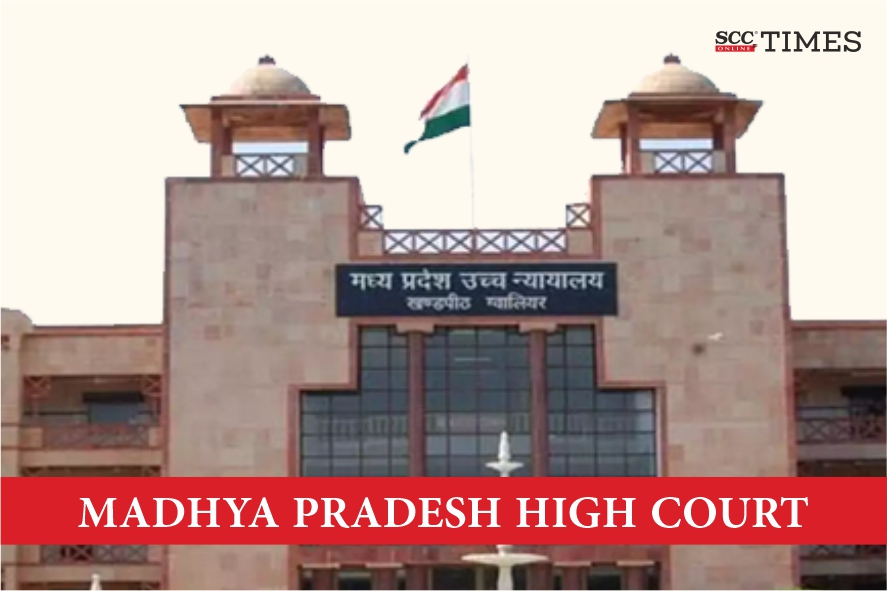Madhya Pradesh High Court: In a writ petition seeking the quashment of FIRs registered against the petitioner, a student leader for forcibly entering the school, abusing the staff, damaging property, threatening to kill the staff and later abusing and scuffling with the police, a single-judge bench of G.S. Ahluwalia, J., dismissed the petition and affirmed that the registration of FIRs without conducting a preliminary inquiry was appropriate given the facts and circumstances of the present case which disclosed the commission of cognizable offences.
Factual Matrix
In the instant matter, the principal of the British School, Kudan lodged an FIR alleging that the petitioner, a student leader, and his friends forcibly entered the school, abused the staff, damaged property, and threatened to kill the staff. Subsequently, another FIR was registered based on a report by police officers stating that the petitioner abused and scuffled with the police when they tried to arrest him at his house. The petitioner filed a writ petition seeking a direction to respondents to conduct a fair, impartial, and proper inquiry by an independent agency into the petitioner’s case and take cognizance against the responsible erring police officers. The petitioner further sought the quashment of both the FIRs registered against him.
Moot Point
-
Whether an FIR can be quashed on the ground of non-holding of preliminary inquiry or not?
-
Whether the FIR is bad on account of not holding a preliminary inquiry?
-
Whether the suspect/accused has a right of pre-audience before registration of an offence or not?
Parties’ Contentions
The petitioner contended that the police should have conducted a preliminary inquiry before registering the FIRs. It was contended that the petitioner was entitled to a hearing before the registration of the FIRs. However, the respondents contended that the registration of an FIR is mandatory if the information discloses the commission of a cognizable offense, as per Supreme Court’s judgment in Lalita Kumari v. State of U.P., (2014) 2 SCC 1.
Court’s Analysis
The Court discussed Lalita Kumari (Supra), where the Supreme Court held that the registration of FIR is mandatory if the information discloses a cognizable offense. The Supreme Court stated that the preliminary inquiry is permissible only to ascertain whether a cognizable offense is disclosed, and the scope of a preliminary inquiry is not to verify the veracity of the information but to ascertain if it reveals a cognizable offense. The Supreme Court further stated that preliminary inquiries may be conducted in cases such as matrimonial disputes, commercial offenses, medical negligence, corruption cases, and abnormal delays in reporting. The Court also referred to CBI v. Thommandru Hannah Vijayalakshmi, (2021) 18 SCC 135, where the Supreme Court emphasised that a preliminary inquiry is not mandatory before registering an FIR if the information discloses a cognizable offense. The Supreme Court further stated that the CBI Manual, which suggests preliminary inquiry, cannot override the Criminal Procedure Code, 1973 (CrPC). The Court held that “holding of a preliminary inquiry is desirable and the FIR cannot be quashed on the ground of non-holding of preliminary inquiry”, especially when the information clearly discloses the commission of a cognizable offence.
The Court noted that the Supreme Court’s judgments in Lalita Kumari (Supra) and subsequent cases make it clear that the registration of an FIR is mandatory if the information discloses a cognizable offense, a preliminary inquiry is not mandatory and preliminary inquiry is only required in specific circumstances. The specific circumstances where the preliminary inquiry may be conducted include matrimonial disputes, commercial offences, medical negligence cases, corruption cases, and cases with abnormal delay in reporting. The Court rejected the petitioner’s contention that before registering an offence, a preliminary inquiry into the correctness of the allegations should have been made and held that the petitioner’s contention is per se misconceived. The Court held that the fact of the present case indicates that the offenses for which the petitioner is charged with are cognizable, thus mandating the registration of FIRs.
The Court referred to Romila Thapar v. Union of India, (2018) 10 SCC 753, where the Supreme Court held that accused persons do not have a say in the matter of the appointment of the investigating agency and the accused cannot choose which agency investigates the alleged offence, Sanjiv Rajendra Bhatt v. Union of India, (2016) 1 SCC 1, where it was held that the accused has no right to dictate the manner of investigation or mode of prosecution and E. Sivakumar v. Union of India, (2018) 7 SCC 365, where the Supreme Court held that the accused is not entitled to an opportunity of hearing as a matter of course in a writ petition seeking impartial investigation. The Court held that the “suspect/accused has no right of pre-audience before registration of FIR”. The Court emphasized that allowing such a right would hinder prompt action and the effective functioning of the investigation process. The Court further noted that the petitioner could not point out any law by which a self-proclaimed student leader can be permitted to enter inside a school unauthorizedly.
Court’s Decision
The Court held that the police are within their rights to register an FIR when the information discloses a cognizable offense without the need for a preliminary inquiry. The Court dismissed the petitioner’s request to quash the FIRs based on the lack of a preliminary inquiry.
[Abhishek Pandey v. State of M.P., 2024 SCC OnLine MP 4865, Decided on 08-07-2024]
Advocates who appeared in this case :
Petitioner present in person, Counsel for the Petitioner
Smt. Swati Aseem George, Deputy Government Advocate, Counsel for the Respondents/State








